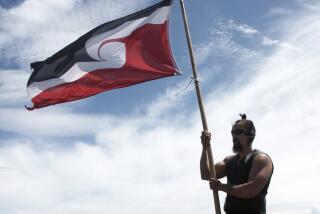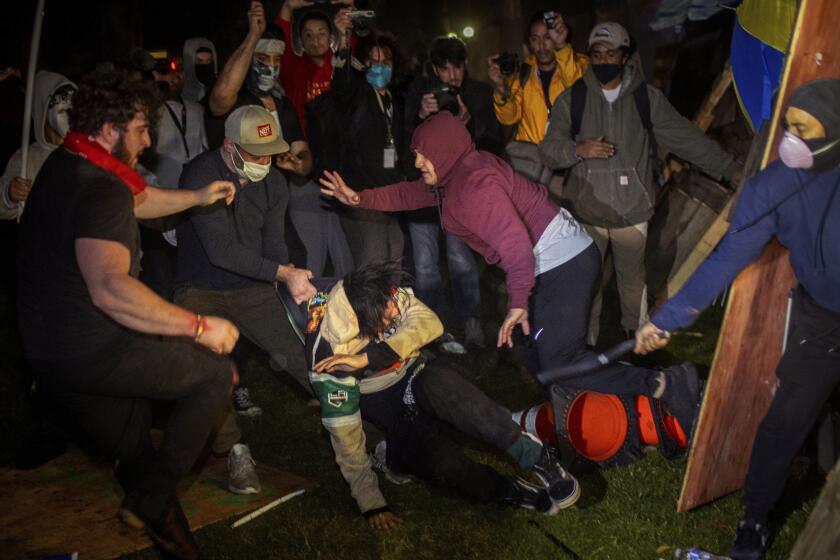2 held in slaying of Colombia reporter
Colombian authorities on Thursday arrested two local politicians in connection with the April 2003 killing of Jose Emeterio Rivas, a radio reporter who had denounced links between local government and paramilitary groups.
The arrests in the northern city of Barrancabermeja were welcomed by rights groups that have long complained of official impunity in Colombia. Last March, the Inter American Press Assn. slammed the Colombian government for suspending investigations into the slayings of five journalists.
With its mix of cocaine traffickers, paramilitary groups and leftist guerrillas, Colombia often has been classified as one of the world’s most perilous countries for journalists. At least 130 Colombian journalists have been killed since 1988, according to the press association. Ten were killed in 2003, the year of Rivas’ slaying. Since then, such killings have declined, and only one was reported this year.
Rivas, 44, moderated a popular show in which he often alleged malfeasance by city hall to benefit what was then the nation’s largest paramilitary group, the Central Bolivar Bloc. Investigations into alleged government ties with paramilitary groups have led to the arrest of 13 legislators, nearly all of them close allies of President Alvaro Uribe.
After receiving death threats, Rivas asked the authorities for a guard and was placed under the government’s journalist protection program. But on April 6, 2003, his bullet-riddled body was found on a road connecting Barrancabermeja to Bucaramanga.
The suspects, Juan Pablo Ariza, who is now a candidate for the Barrancabermeja city council, and Abelardo Rueda Tabon, who is running for state assembly, were municipal employees at the time of the killing.
An apparent break in the case came in June when a former paramilitary leader, Pablo Emilio Quintero, told authorities he had planned Rivas’ killing, which he said was ordered by leaders of the Central Bolivar Bloc, according to the Press Freedom Foundation, a Colombian advocacy group.
Quintero testified as part of Colombia’s ongoing peace process, which has seen the demobilization of 31,000 militia members. As a condition of receiving light sentences, paramilitary leaders such as Quintero must confess to all crimes and promise to give up their criminal activities.
The leader of the Central Bolivar Bloc, Carlos Mario Jimenez, alias “Macaco,” was removed from the peace process last month for allegedly continuing to run his criminal empire from his jail cell, and will probably soon be extradited to the United States.
--
More to Read
Start your day right
Sign up for Essential California for news, features and recommendations from the L.A. Times and beyond in your inbox six days a week.
You may occasionally receive promotional content from the Los Angeles Times.






